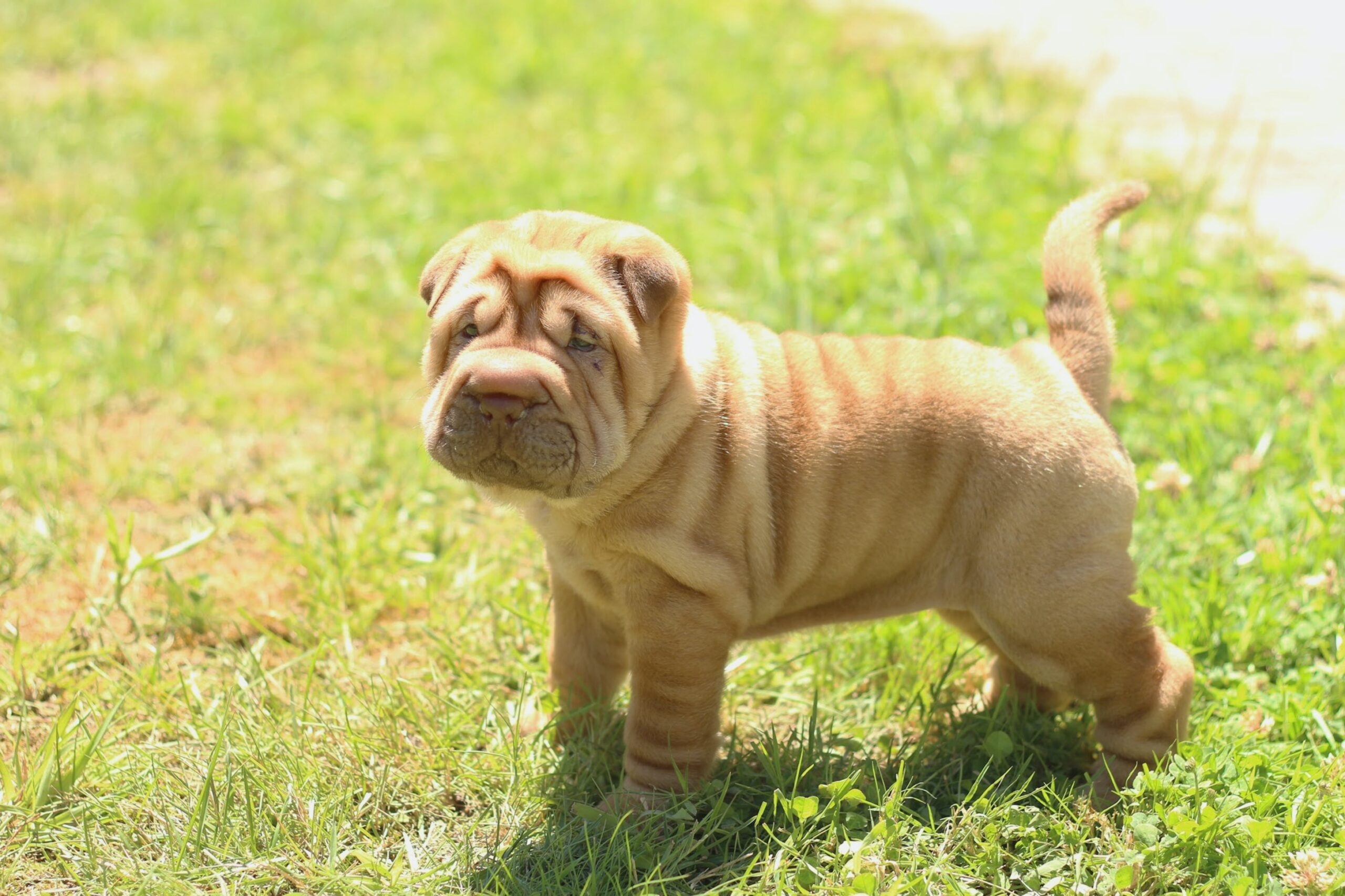Shar Peis, famous for their wrinkled skin and unique appearance, is a treasured breed among dog enthusiasts. Their loyalty and independent nature make them unique companions. However, due to their unique genetic makeup, Shar Peis are prone to several specific health issues. This article aims to highlight the five most common health problems in Shar Peis and the signs to look out for to ensure your dog’s health.

-
Familial Shar Pei Fever (FSF)
Familial Shar Pei Fever is a breed-specific, hereditary inflammatory disorder prevalent among Shar Peis. This condition presents with recurring fever episodes often accompanied by swelling of the hocks (ankle area of the leg). These fever episodes can last 12-36 hours. In severe cases, FSF may lead to kidney and liver damage due to the excessive production of amyloid proteins. If your dog shows signs of inexplicable fever, lethargy, loss of appetite, or swelling, contact your vet immediately. Regular veterinary check-ups can help manage this condition and prevent complications.
-
Skin Conditions
The characteristic wrinkles of Shar Peis make them susceptible to various skin conditions. The deep folds can harbor moisture and bacteria, leading to infections, dermatitis, and in severe cases, painful skin sores. Signs to look for include redness, foul odor, itching, and excessive scratching. Regular cleaning of the skin folds and maintaining a healthy diet can help prevent these issues. Veterinary intervention is essential if any signs of skin infections become apparent.
-
Hip Dysplasia
Hip dysplasia is a skeletal condition that often affects larger breeds, including Shar Peis. This condition results in a malformation of the hip joint that can lead to discomfort, pain, and in severe cases, arthritis. Symptoms include difficulty standing up, unwillingness to run or jump, limping, and a change in gait. If you notice these signs, your vet may suggest lifestyle changes, medication, or surgical intervention in severe cases.
-
Entropion
Entropion is a genetic condition where the eyelid folds inward, causing the eyelashes to rub against the cornea, resulting in irritation or damage to the eye. Shar Peis are particularly prone to this due to their unique facial structure. Signs of entropion include excessive tearing, squinting, and sensitivity to light. In extreme cases, corneal ulcers or perforations may occur. If you notice these signs, seek veterinary assistance immediately. Treatment typically involves surgical correction.
-
Hypothyroidism
Shar Peis are prone to hypothyroidism, a condition where the thyroid gland doesn’t produce enough hormones, impacting metabolism. Symptoms include unexplained weight gain, lethargy, intolerance to colds, skin conditions, and a dull coat. If you notice these symptoms, contact your vet. Hypothyroidism is typically managed with daily medication to replace the deficient hormones.
Being aware of these common health issues in Shar Peis can help owners take preemptive measures and know when to seek veterinary assistance. Regular veterinary care is essential in detecting and managing these conditions early on. Early intervention can significantly improve the prognosis and quality of life for your Shar Pei. Remember, though, that not all Shar Peis will experience these health issues, and with proper care, your dog can live a happy and healthy life.
 Toledo, United States.
Toledo, United States.